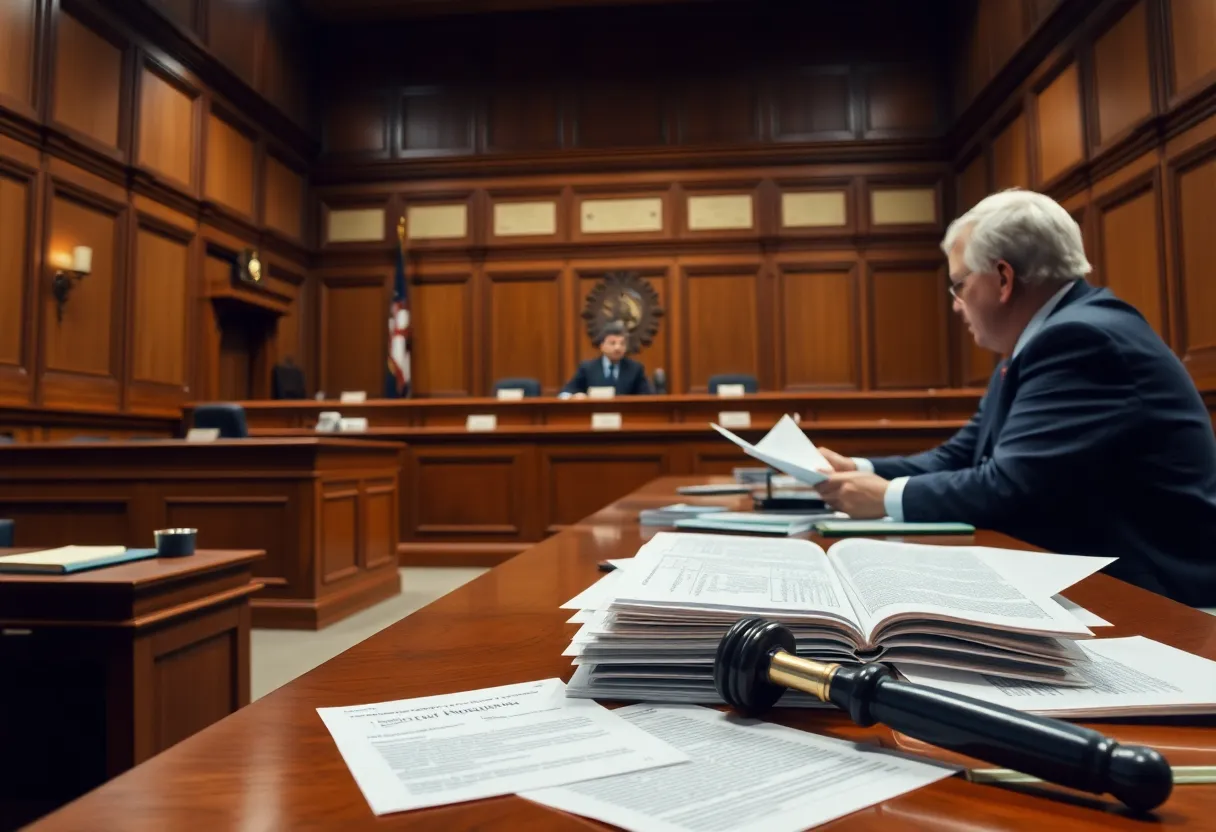News Summary
The South Carolina Supreme Court has upheld discovery sanctions against Atlas Turner, Inc. regarding an asbestos-related wrongful death case. This ruling follows the refusal of the company to comply with court-ordered discovery requests in the lawsuit initiated by Donna B. Welch after her husband’s death from mesothelioma. The court’s decision emphasizes that foreign companies must adhere to U.S. court orders despite domestic legal restrictions, ensuring protection for claimants in asbestos-related lawsuits.
Columbia, South Carolina – The South Carolina Supreme Court has upheld discovery sanctions against Atlas Turner, Inc. in a significant ruling concerning an asbestos-related wrongful death case. The decision, filed on May 21, 2025, confirms that the company’s refusal to comply with court-ordered discovery requests warrants severe consequences.
The lawsuit was initiated by Donna B. Welch following the death of her husband, Melvin G. Welch, who succumbed to mesothelioma in 2023. The couple alleged that Melvin was exposed to asbestos while working in Greenwood, South Carolina during the late 1960s and early 1970s, during which time insulation products manufactured by Atlas Turner were reportedly used. The discovery sanctions stemmed from Atlas Turner’s refusal to participate in the legal discovery process after the trial court denied the company’s motion to dismiss the case, citing a lack of jurisdiction.
Atlas Turner, a Canadian-based company headquartered in Quebec, did not produce a corporate witness as mandated by South Carolina’s Rule 30(b)(6), claiming instead that no current employees had the requisite knowledge regarding historical operations at the time of Melvin Welch’s alleged exposure. Furthermore, the company raised concerns that complying with the disclosure requirements would violate the Quebec Business Concerns Records Act (QBCRA).
The court found the company’s refusal to comply with discovery orders to be “willful and intentional.” As a result, Atlas Turner’s answer was struck, effectively placing the company in default. In their ruling, the South Carolina justices clarified that the presence of foreign blocking statutes like the QBCRA does not excuse companies from complying with properly issued American court orders.
Additionally, the ruling affirmed the appointment of a Receiver whose responsibilities include managing and collecting Atlas Turner’s insurance assets. This includes various insurance policies and claims that could be relevant to the lawsuit. However, a portion of the Receivership order that granted control over other related assets was reversed due to concerns that it was too expansive.
This ruling highlights the South Carolina judiciary’s capability to regulate insurance coverage in asbestos cases, particularly when dealing with foreign defendants who resist cooperation during the discovery process. By reinforcing the imposition of receivership, the court aims to protect the interests of claimants in asbestos-related lawsuits.
The South Carolina Supreme Court’s decision not only supports claimant rights but also establishes a precedent for dealing with future cross-border insurance disputes related to legacy liability claims. As Atlas Turner now faces default, its insurance assets are under the supervision of a Receiver in South Carolina, marking an important moment in the ongoing legal landscape surrounding asbestos exposure cases.
As litigation proceeds, the implications of this ruling may extend beyond this case, influencing how foreign companies engage with U.S. judicial processes, especially in matters related to historical responsibility for asbestos exposure and associated health risks.
Deeper Dive: News & Info About This Topic
HERE Resources
Additional Resources
- Insurance Business: South Carolina Supreme Court Sanctions Atlas Turner
- Law360: SC Justices Affirm Receivership Order in Asbestos Dispute
- Wikipedia: Asbestos
- Post and Courier: South Carolina Asbestos Mining Lawsuit
- Encyclopedia Britannica: Asbestos

Author: HERE Greenwood
The GREENWOOD STAFF WRITER represents the experienced team at HEREGreenwood.com, your go-to source for actionable local news and information in Greenwood, Greenwood County, and beyond. Specializing in "news you can use," we cover essential topics like product reviews for personal and business needs, local business directories, politics, real estate trends, neighborhood insights, and state news affecting the area—with deep expertise drawn from years of dedicated reporting and strong community input, including local press releases and business updates. We deliver top reporting on high-value events such as the Festival of Flowers, Greenwood Community Theatre performances, and agricultural showcases at the Greenwood County Fairgrounds. Our coverage extends to key organizations like the Greenwood Chamber of Commerce and the Greater Greenwood United Ministry, plus leading businesses in manufacturing and healthcare that power the local economy such as FujiFilm Manufacturing and Self Regional Healthcare. As part of the broader HERE network, including HERECharleston.com, HEREColumbia.com, HEREGreenville.com, and HEREHiltonHead.com, we provide comprehensive, credible insights into South Carolina's dynamic landscape.





